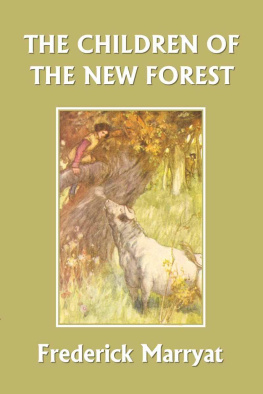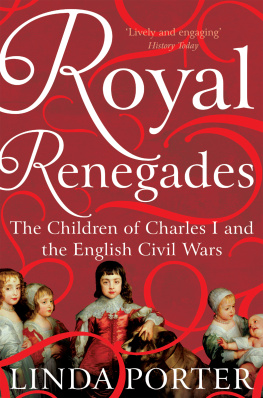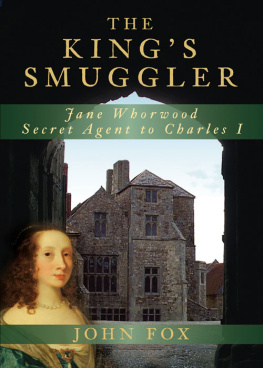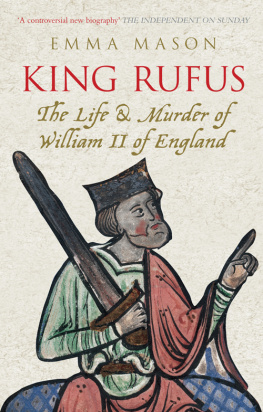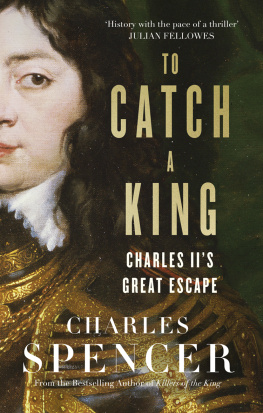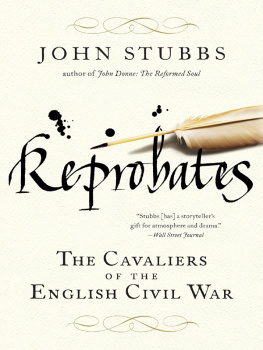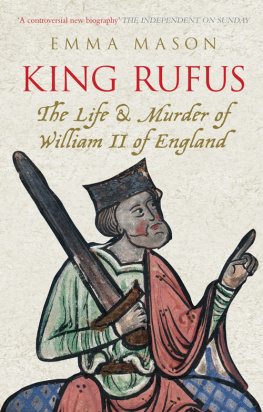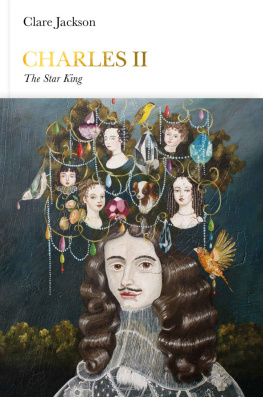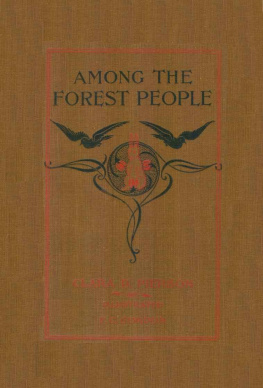The Children of the New Forest
by
Captain Marryat
Yesterday's Classics
Chapel Hill, North Carolina
Cover and Arrangement 2010 Yesterday's Classics, LLC
All rights reserved. No part of this book may be reproduced or retransmitted in any form or by any means without the written permission of the publisher.
This edition, first published in 2010 by Yesterday's Classics, an imprint of Yesterday's Classics, LLC, is an unabridged republication of the work originally published in 1847. This title is available in a print edition (ISBN 978-1-59915-050-3).
Yesterday's Classics, LLC
PO Box 3418
Chapel Hill, NC 27515
Yesterday's Classics
Yesterday's Classics republishes classic books for children from the golden age of children's literature, the era from 1880 to 1920. Many of our titles are offered in high-quality paperback editions, with text cast in modern easy-to-read type for today's readers. The illustrations from the original volumes are included except in those few cases where the quality of the original images is too low to make their reproduction feasible. Unless specified otherwise, color illustrations in the original volumes are rendered in black and white in our print editions.
Contents
CHAPTER I
Cavaliers and Roundheads
The circumstances which I am about to relate to my juvenile readers took place in the year 1647. By referring to the history of England of that date they will find that King Charles the First, against whom the Commons of England had rebelled, after a civil war of nearly five years, had been defeated, and was confined as a prisoner at Hampton Court. The Cavaliers, or the party who fought for King Charles, had all been dispersed, and the Parliamentary army under the command of Cromwell were beginning to control the Commons.
It was in the month of November in this year that King Charles, accompanied by Sir John Berkely Ashburnham and Legg, made his escape from Hampton Court, and rode as fast as the horses could carry them towards that part of Hampshire which led to the New Forest. The king expected that his friends had provided a vessel in which he might escape to France; but in this he was disappointed. There was no vessel ready, and after riding for some time along the shore he resolved to go to Titchfield, a seat belonging to the Earl of Southampton. After a long consultation with those who attended him, he yielded to their advice, which was, to trust to Colonel Hammond, who was governor of the Isle of Wight for the Parliament, but who was supposed to be friendly to the king. Whatever might be the feelings of commiseration of Colonel Hammond towards a king so unfortunately situated, he was firm in his duties towards his employers, and the consequence was that King Charles found himself again a prisoner in Carisbrook Castle.
But we must now leave the king, and retrace history to the commencement of the civil war. A short distance from the town of Lymington, which is not far from Titchfield, where the king took shelter, but on the other side of the Southampton Water, and south of the New Forest, to which it adjoins, was a property called Arnwood, which belonged to a Cavalier of the name of Beverley. It was at that time a property of considerable value, being very extensive, and the park ornamented with valuable timber; for it abutted on the New Forest, and might have been supposed to have been a continuation of it. This Colonel Beverley, as we must call him, for he rose to that rank in the king's army, was a valued friend and companion of Prince Rupert's, and commanded several troops of cavalry. He was ever at his side in the brilliant charges made by this gallant prince, and at last fell in his arms at the battle of Naseby. Colonel Beverley had married into the family of the Villiers, and the issue of his marriage was two sons and two daughters; but his zeal and sense of duty had induced him, at the commencement of the war, to leave his wife and family at Arnwood, and he was fated never to meet them again. The news of his death had such an effect upon Mrs. Beverley, already worn with anxiety on her husband's account, that a few months afterwards she followed him to an early tomb, leaving the four children under the charge of an elderly relative till such time as the family of the Villiers could protect them; but, as will appear by our history, this was not at that period possible. The life of a king and many other lives were in jeopardy, and the orphans remained at Arnwood, still under the care of their elderly relation, at the time that our history commences.
The New Forest, my readers are perhaps aware, was first enclosed by William the Conqueror as a royal forest for his own amusement, for in those days most crowned heads were passionately fond of the chase; and they may also recollect that his successor, William Rufus, met his death in this forest by the glancing of an arrow shot by Sir Walter Tyrrell. Since that time to the present day it has continued a royal domain. At the period of which we are writing it had an establishment of verderers and keepers, paid by the Crown, amounting to some forty or fifty men. At the commencement of the civil war they remained at their posts, but soon found, in the disorganised state of the country, that their wages were no longer to be obtained; and then, when the king had decided upon raising an army, Beverley, who held a superior office in the forest, enrolled all the young and athletic men who were employed in the forest, and marched them away with him to join the king's army. Some few remained, their age not rendering their services of value, and among them was an old and attached servant of Beverley's, a man above sixty years of age, whose name was Jacob Armitage, and who had obtained the situation through Colonel Beverley's interest. Those who remained in the forest lived in cottages many miles asunder, and indemnified themselves for the non-payment of their salaries by killing the deer for sale and for their own subsistence.
The cottage of Jacob Armitage was situated on the skirts of the New Forest, about a mile and a half from the mansion of Arnwood; and when Colonel Beverley went to join the king's troops, feeling how little security there would be for his wife and children in those troubled times, he requested the old man, by his attachment to the family, not to lose sight of Arnwood, but to call there as often as possible to see if he could be of service to Mrs. Beverley. The colonel would have persuaded Jacob to have altogether taken up his residence at the mansion; but to this the old man objected. He had been all his life under the greenwood tree, and could not bear to leave the forest. He promised the colonel that he would watch over his family, and ever be at hand when required; and he kept his word. The death of Colonel Beverley was a heavy blow to the old forester, and he watched over Mrs. Beverley and the orphans with the greatest solicitude; but when Mrs. Beverley followed her husband to the tomb he then redoubled his attentions, and was seldom more than a few hours at a time away from the mansion. The two boys were his inseparable companions, and he instructed them, young as they were, in all the secrets of his own calling. Such was the state of affairs at the time that King Charles made his escape from Hampton Court; and I now shall resume my narrative from where it was broken off.
As soon as the escape of Charles I. was made known to Cromwell and the Parliament, troops of horse were despatched in every direction to the southward, towards which the prints of the horses' hoofs proved that he had gone. As they found that he had proceeded in the direction of the New Forest, the troops were subdivided and ordered to scour the forest, in parties of twelve to twenty, while others hastened down to Southampton, Lymington, and every other seaport or part of the coast from which the king might be likely to embark. Old Jacob had been at Arnwood on the day before, but on this day he had made up his mind to procure some venison, that he might not go there again empty-handed; for Miss Judith Villiers was very partial to venison, and was not slow to remind Jacob if the larder was for many days deficient in that meat. Jacob had gone out accordingly; he had gained his leeward position of a fine buck, and was gradually nearing him by stealth, now behind a huge oak-tree, and then crawling through the high fern, so as to get within shot unperceived, when on a sudden the animal, which had been quietly feeding, bounded away and disappeared in the thicket. At the same time Jacob perceived a small body of horse galloping through the glen in which the buck had been feeding. Jacob had never yet seen the Parliamentary troops, for they had not during the war been sent into that part of the country, but their iron skull-caps, their buff accoutrements, and dark habiliments, assured him that such these must be; so very different were they from the gaily-equipped Cavalier cavalry commanded by Prince Rupert. At the time that they advanced, Jacob had been lying down in the fern near to some low black-thorn-bushes; not wishing to be perceived by them, he drew back between the bushes, intending to remain concealed until they should gallop out of sight; for Jacob thought, "I am a king's forester, and they may consider me as an enemy; and who knows how I may be treated by them?" But Jacob was disappointed in his expectations of the troops riding past him; on the contrary, as soon as they arrived at an oak-tree within twenty yards of where he was concealed, the order was given to halt and dismount; the sabres of the horsemen clattered in their iron sheaths as the order was obeyed, and the old man expected to be immediately discovered; but one of the thorn-bushes was directly between him and the troopers, and effectually concealed him. At last Jacob ventured to raise his head and peep through the bush; and he perceived that the men were loosening the girths of their black horses, or wiping away the perspiration from their sides with handfuls of fern.

